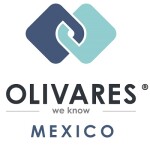As a result of interactions in the so-called metaverse and digital assets such as non-fungible tokens (NFTs), multiple business opportunities have arisen. In line with this, the debate about the general regulations of intangible assets has evolved.
Regarding the guidance notes published by EUIPO on June 23 2022 in relation to the classification of trademarks that distinguish virtual goods, it has been determined that according to their nature they correspond to international Class 9, insofar as they are treated as digital content. Furthermore, EUIPO has stated that the term ‘virtual goods’ should be specific according to the composition of the goods. For example, the content could be referred to as ‘virtual goods, namely virtual headgear and clothing’.
As concerns NFTs, the EUIPO has proposed to publish a 12th edition of its Nice Classification system, to be published in 2023, including ‘downloadable digital files authenticated by non-fungible tokens’. This would provide clarity and precision, because in EUIPO's opinion, NFTs only act as authentication certificates for digital files or elements.
In general practice, we have observed that rights holders, on the recommendation of their specialised attorneys, have applied for trademarks intended for use in the metaverse. These trademarks are in Class 9 for virtual goods, Class 35 for retail stores with virtual goods, and Class 41 for entertainment services, including the provision of virtual goods that are not downloadable online.
Considering that precision is a key objective to obtain adequate trademark protection, EUIPO has specified that services related to virtual goods and NFTs will be classified according to the classification principles established for services. This means services will be classified according to the branches of activities defined by the service class headings and their explanatory notes, or, if not specified, by analogy with other similar services in the alphabetical list.
The existing debate among the Intellectual Property Niche Academy I is whether NFTs should be considered unique digital certificates for the authentication of digital items, or whether it would be more useful to clarify that they are not limited to authenticating digital items only. If the latter, there is a possibility that NFTs could transfer to the physical or material realm in that they could be downloaded, and with the support of 3D printing models.
It is worth mentioning the way in which the Mexican Institute of Industrial Property (IMPI) interprets these new regulations in the classification of trademarks to distinguish goods or services in the metaverse. Up to this point, we have observed that examiners have adopted the criterion of accepting NFTs in Class 9 without further elaboration. However, specific clarification has been requested with respect to the generality of virtual goods or products as set forth by EUIPO.
It will be interesting to see if an interpretation is made with respect to the use of trademarks in the metaverse and their possible transformation by download to the everyday, physical world.












